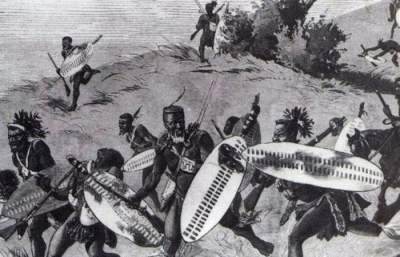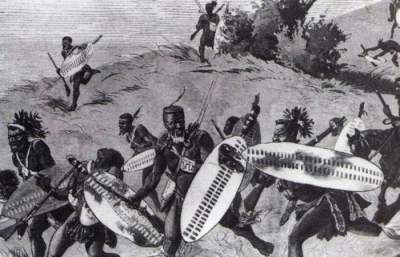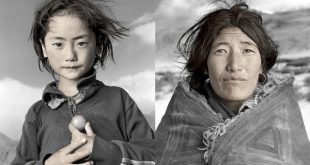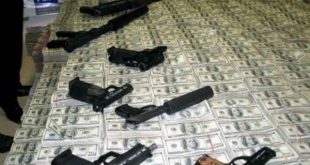 Some dictators also knew what magnanimity.
Some dictators also knew what magnanimity.
Dictator. This word has a negative Association. Imagination depicts an oppressive regime, the people’s suffering and the power of one over all. However, in fact, in a dictatorship there is nothing wrong. Moreover, many consider it the best form of government — of course, provided that the dictator is benevolent. If he is merciful, caring, and cares about the welfare of his people.
Given the very nature of dictatorship and the fact that power usually corrupts people, a benevolent dictator in world history — one, two and miscalculated. So the theory about the benefits of dictatorship over other political devices is fundamentally wrong. However, at times the world was created as a benevolent dictator. Among them were those whom will be discussed below.
Peisistratus
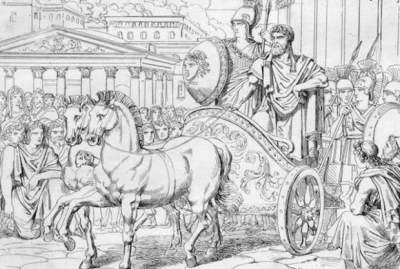
Peisistratus was a truly benevolent dictator. He ruled in Athens from 561 for 527 BC – however, not constantly, but intermittently. The first time he was elected a tyrant (dictator) of Athens, vote at a public meeting, but soon the enemies of Pisistratus gained sufficient support of the aristocracy and cast it out. The second time he entered the city hand-in-hand with unknown high beauty and said that she was the goddess Athena. The people have proclaimed their ruler Pisistratus. However, he was again deposed. This time the exile lasted ten years, during which peisistratus collected an army. He returned to Athens and with the help of supporters inside the city seized power in the third and last time.
During all three of their boards peisistratus was regarded by the Athenians with great love. He cared about the welfare of citizens: for example, singled out the poor of the earth and of the loan. Under him Athens lived in peace and prospered. When Pisistratus died (his death), the power was inherited by his sons Hippias and Hipparchus. For some time they maintained the support of the people, but after the death of Hipparchus from the killer’s hands Gippy began to reign much harder and lost the people’s love. In the end, Hippias was banished from the city by the Spartans — with the Delphic Oracle was convinced to save Athens from tyranny.
Ashoka

Ashoka the Great lived from 304 in 231 BC and ruled the Empire Maury — the largest on the Indian subcontinent in its history and one of the largest empires of the ancient world. Once in power, Ashoka initially rules in the same way as its predecessor. He was cruel and effective: using military might, controlled the Empire, expanded its boundaries and even built a prison, which the contemporaries aptly nicknamed “Isakovym hell.” Prisoners there were subjected to inhuman torture and no one was released alive.
A few years from the beginning of his reign, Asoka decided to join the Empire neighbouring state Kalinga, and declared war on him. The victims of this war became about 300 thousand people — the number of bad associated with the generosity. However, after graduation, Ashoka has publicly repented of the suffering caused, renounced war and, according to some sources, converted to Buddhism. He instructed senior officials to help the poor and the elderly, founded medical institutions, has initiated various social projects for the benefit of citizens — for example, planting trees that provide shade along the roads.
Marcus Aurelius

Marcus Aurelius Antoninus born in Rome in 121 year, and came to power in the year 161 ad. It is called the last of the good emperors. You may be familiar with Marcus Aurelius (or rather, his artistic image) on the film “Gladiator”. Mark rules with his half-brother (both were adopted sons of the Emperor Antoninus Pius), Lucius Verom — until the latter’s death in 169 year. To 177 years mark was in power alone. He tried to rule justly, in accordance with them professed philosophy of stoicism. However, in the Imperial share of Marcus Aurelius took many tests — including endless war with the new religious sect of fanatics who called themselves Christians.
The oppression of the mark of the early Christians today seem brutal, but the Emperor thought such measures necessary to ensure order and peace in Rome. He was probably in his own right. Despite this religious persecution, Marcus Aurelius is considered a good ruler, because he put people’s needs above their own aspirations to fame. Few of the emperors were capable of.
Khosrow I
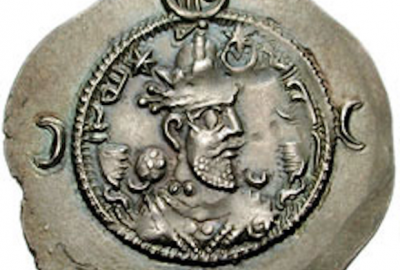
Khosrow was an Iranian shahanshah, who ruled the Sassanid Empire from 531 for 579 years. About his childhood and adolescence there are just legends. Much more is known about the subsequent period of life. When he ascended the throne, Khosrow engaged in reforming the devastated Empire. The main reform was the tax. It provided a fair system of taxation and at the same time brought great profit to the Empire, returning the economy stability.
Patronized Khosrow and culture. At his court flourished astronomy. When Athens closed Plato’s ancient Academy, some of the Greek philosophers moved to the Empire of the Sassanids. Khosrov received them very cordially.
Frederick The Great
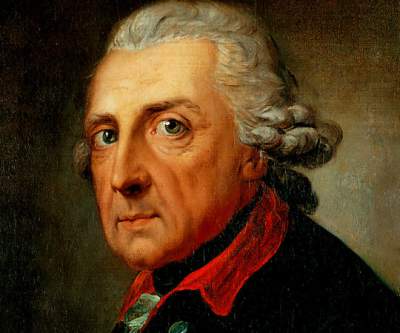
Frederick II was the third king of Prussia. He is charged in the merit that he transformed Prussia into one of the most prominent European countries of that time. Friedrich played a huge role in the dissemination and strengthening of the ideas of enlightened government, ideas of the age of reason. The Prussian king was very tolerant and did not doubt that the public interest before the interests of personal or dynastic.
Friedrich redrawn and standardized Prussian judiciary, in particular, prohibited torture. He abolished the censorship of the press and revived the scientific work of the Berlin Academy. The king-philosopher, as it was called, strengthened the domestic economy and promoted trade, built canals, imposed protectionist fees and reduced internal fees.
Simon Bolivar
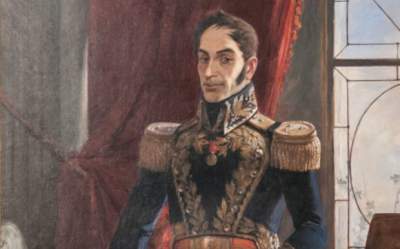
Simon Bolivar was the liberator of the Spanish colonies in South America, including his native country of Venezuela. However dictatorial he’s not in it, and in Peru.
Bolivar tried to rid Venezuela from the Spanish domination of the royalists several times. The third attempt was a success. He then continued the struggle against the royalists in South America and took control of Peru.
The political ideology of Bolivar was uncompromising authoritarian: he believed that for the greatest success, the country needed a strong government (or a dictator).
Simon Bolivar got a place in our list not so much for their achievements as for the ideas. Bolivar dreamed of uniting the Spanish-American States. He was almost successful. Bolivar helped create, and he signed an agreement between Colombia, Peru, Mexico and the United Provinces of Central America, which, among other things, provided for a common army and Navy. Ultimately, however, kept his word, only Colombia.
Mustafa Kemal Ataturk

Military career of Mustafa Kemal atatürk went to the mountain after he was given command of the 19th division of the Turkish army. It was then, in 1915, it has proven itself in the defense of the Dardanelles Strait from the invasion of the Entente. This gave rise to repeated further promotions.
Mudros armistice of 1918 marked the end of the fight, tearing the Ottoman Empire apart. It also gave the allies the right to occupy the Turkish fortress on the most important water arteries and other areas that could pose a threat to the world. Mustafa is not particularly pleased by this turn of events and organized a resistance. When at the end of the First world war was signed the Treaty of sèvres, which provided for the partition of the Ottoman Empire by the allies, Mustafa Kemal demanded for Turkey’s full independence. To defend the independence of the young Turkish Parliament had in battles with Greek and Armenian troops. It was not until 29 October 1923, when Mustafa signed the Lausanne peace with the Entente powers. This document is legally secured the collapse of the Ottoman Empire. Turkey proclaimed a Republic and Mustafa its first President.
Officially, he was just a President, but in reality his powers were turned Mustafa Kemal into a dictator. As President, he first undertook to modernize and secularize the country entrenched in the Constitution of the norm about the separation of state and religion. Mustafa Kemal Ataturk emancipated women and industrialize Turkey, creating a network of Railways and state industrial enterprises.
Not all of his policy initiatives were popular — especially the installation for separation of Church and state. However, the first Turkish President freed, emancipated and developed their people.
Douglas MacArthur

Douglas MacArthur was not a dictator in the usual sense of the word, because no rules no country. However, as the Supreme commander of the United forces, he after the Second world war gained absolute control over Japan and its occupied by allied troops. An Advisory role in postwar Union had multiple countries, however, the last word on all decisions remained with MacArthur. It is, in fact, gave him unlimited power. And when a person has complete power, he, in General, can be considered a dictator. After all, the position of MacArthur was called the Supreme commander. You know.
During the occupation of Japan by the combined forces of MacArthur held in the country many reforms. For example, seized political power from the Emperor and gave it to the Parliament, increased women’s rights; carried out land reform, improved the welfare of farmers and cut the dominance of wealthy landowners. Transformations helped to create the country’s strong economy. In fact, this was the main merit of MacArthur in occupied Japan: its economy during the war, visibly shaken, and the combined forces of all restored.
Sir Seretse Khama

Khama made our list due to the fact that due to enormous public support had been the President of Botswana until his death. The government trusted him infinitely and gave Chamu much power. He almost certainly would rule the country to a hundred years, if fate had granted him such a long life.
Khama actively advocated for the independence of Bechuanaland, later became the Republic of Botswana. The country gained independence from Britain in 1966, Khama became the first President.
During his reign he strengthened the economy and turned it into the most progressive in the world (initially, Botswana was incredibly poor). Khama exported natural resources, and the profit obtained was invested in infrastructure, health and education, to develop the economy faster. He made the introduction in Botswana free universal education. Sir Seretse Khama was rezidentstvoval to the end of his life, establishes in 1980.
Abdullah II

Before the ascension to the Jordanian throne, Abdullah commanded the special Forces of the Kingdom of Jordan. Initially, he was not in the list of heirs, but in 1999, king Hussein, whose life was corrosive cancer, called Abdullah as the new heir. The current pretender to the throne, the king’s brother, considered too young for power. Many viewed this decision is critical, considering Abdullah is not suitable for such a responsible post. However, the new king has demonstrated his ability to rule with a firm hand.
He personally supervised the transformation in the Jordanian army. This has helped the Kingdom avoid the wave of bloodshed that has engulfed neighbouring countries during the Arab spring.
Also Abdullah to develop the economy and carried out social reforms, for example, introduced free-market trade and has improved the status of women. He rules to this day.
The history of the world proves once again that you cannot judge people only by the categories “good-bad”. Even dictators. They were (and some still are) real people, with their weaknesses and vices but at the same time tried to rule his subjects wisely and generously. Came out all different. What kind of dictator would you?


